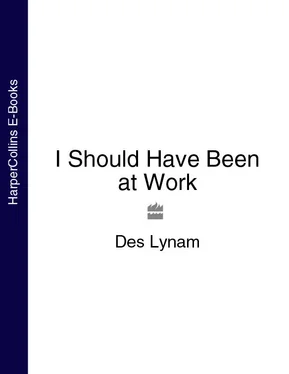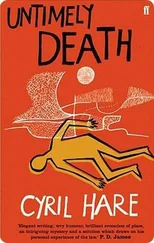I felt alone and in despair. I needed a friend. I telephoned Jill, who had taken a job at a hospital in Holland. Jill had known and liked my father very much; so she came and held my hand and made arrangements, looked after my relatives from Ireland, and got me through. I took a few weeks off work and we spent some lazy days on Brighton beach as I tried to get over my loss. Then, once again, I let her go.
I now immersed myself into work even more and was glad of the boxing trips abroad. And of course, like millions of other people, I was still intrigued by Muhammad Ali. But he was now getting well past his prime. Many people thought he should have retired with his faculties intact after the ‘Thriller in Manila’. Certainly his doctor, Ferdie Pacheco, who had always been in his corner, strongly advised him to do so. By 1978, Ali was still very much active, but his speed of reflexes had deserted him and the wonderful footwork was a thing of the past. Now he was defending his title against Leon Spinks, a blown-up light heavyweight whom I had seen win the Olympic gold medal two years before in Montreal, the very title that Ali had won sixteen years earlier.
The fight was taking place in Las Vegas and, as usual, I got there about a week before to cover the build-up. On the day I arrived, my producer Phil King and I were having a bit of a disaster. Not only had the airline managed to send our luggage somewhere else, including all my pre-fight preparation, but the hotel in which we were supposed to be staying had no record of the booking. We were standing in the foyer bagless and roomless, and wondering what our next move was going to be, when the receptionist called my name. ‘Ah, a room,’ I thought. On the contrary, she just had a telephone call for me, on the other end of which was a BBC producer in London. ‘Des,’ he said, ‘I’ve been trying to find you for ages. You’re on live in thirty seconds.’ On came the familiar voice of Tony Lewis, the Sport on Four presenter. ‘Joining me now live from Las Vegas where he’s been watching Ali train is Des Lynam. How is Ali looking, Des?’ There are lies, damned lies, and reports from correspondents in difficult situations.
Eventually we got our hotel sorted out but now we had another problem. With his usual flair for publicity, Ali had a new gimmick. He reckoned that he had been talking too much and was going round with sticking plaster over his mouth. Well, this was jolly fun for the film and television crews and the newspapers, who would all have their pictures of the now wordless Ali; but for this radio commentator it was a total nuisance. Eventually, I managed to persuade him to remove the plaster for a radio interview and he made a big play of ripping it off, so that the microphone could pick up the sound. He always knew precisely what the media needed from him in any given situation.
Then the unthinkable happened. Ali fought his most lethargic contest to date and was on the losing end of a points decision over fifteen rounds. The new heavyweight champion of the world was Leon Spinks, who had only a few professional fights to his credit. Extraordinarily, his brother Michael, who also won an Olympic gold medal in Montreal, at middleweight, went on to win a version of the heavyweight title some years later too.
I always loved going to America for big fight occasions. I felt perfectly at home in the States. All those American movies of my boyhood had set the stage perfectly for me. The first time I went to New York, it seemed so familiar, as though I had been there all my life.
On that first trip there, I came out of my hotel and hailed one of the famous yellow cabs. ‘I wonder if it would be possible to take me to the BBC offices on Fifth Avenue,’ I said to the driver. ‘What is possibility, you want to go there, get in the cab,’ he replied. It taught me an early lesson to cut out the P. G. Wodehouse stuff.
I had been broadcasting on national radio for less than three years when I got a call from someone in BBC Television inviting me to stand in for Frank Bough for four weeks, presenting the Sunday cricket on BBC 2. I explained that cricket was not a special interest of mine in a broadcasting sense. Although I had loved to play the game as a boy, I did not keep up to date with the details of the game in the way I did with many other sports. I was certainly not an expert.
I was told that the job would be simply to ‘top and tail’ the broadcasts and read the scores from other games. It seemed a simple enough task and I agreed to do it. It turned out to be pretty much of a disaster. It rained at all the matches I attended and I was a shuffling nervous wreck as I tried to get the words out to camera. I felt totally ill at ease.
The late, great John Arlott was involved in some of the broadcasts, and it has to be said that he was not overly welcoming. I didn’t particularly blame him. He was hugely famous; I was a raw broadcasting newcomer in comparison. Not for me this television lark, I thought, and I scuttled back to the safety of my radio microphone and ventured nowhere near a television camera again for several years. I had actually received a nice letter from the producer, Bill Taylor, who thanked me for my efforts and thought I managed extremely well. I think he was just being kind.
As time went by, though, people in the business kept telling me I should have another go at television. I was happy doing Sports Report , and my boxing commentaries: by now I had covered the ‘Rumble in the Jungle’ in Zaire, the Olympic Games in Munich and the Commonwealth Games in New Zealand; presented the Today programme; and had my own Radio 2 weekly music show, After Seven. I was a busy and successful radio broadcaster. Nonetheless, other people’s ambitions for me were beginning to sway me towards the possibility of doing television. I had put the cricket disasters to the back of my mind by now and had completed a short series of television quiz shows for BBC Northern Ireland. One day I found myself applying for a job with Southern Television (a forerunner to Meridian) to be their sports reporter. I duly sped off to their studios in Southampton, where I was interviewed and given an audition. A few days later I was notified that the job was mine. I would give three months’ notice to the BBC and off I would go to become a regional TV ‘face’.
I went to see Cliff Morgan, the legendary former Welsh rugby union star, who by this time had enjoyed a long career at the BBC and was the Head of BBC Radio Sport and Outside Broadcasts.
‘Cliff,’ I said, ‘I have decided to take the plunge towards television and I think that working on a regional basis would give me the appropriate lower profile in which to learn something about the craft. Then I will find out if I could ever do the business at a national level, hopefully with the BBC. It’s a gamble, but it’s one I have decided to take.’ I must have sounded a pretentious little twit.
‘Lynam,’ he said, ‘you haven’t got the sense you were born with. Here you are making a name for yourself in radio. You’re having brilliant experience covering all the big events. You’ll end up reporting Bournemouth and bloody Boscombe Athletic. I’ll tell you when it’s time for you to make your television move and it’ll be national television, not piddling about on the Isle of Wight.’ Cliff was not being disparaging about those charming areas of the South Coast; he was merely using his graphic language to dissuade me from my intentions.
He was a very persuasive boss, was Cliff, as well as being one of the major influences in my broadcasting life. He remains a dear friend and I am proud and privileged to have known him. Ironically, he now lives on the Isle of Wight, where, sadly, he has not been enjoying the best of health.
Читать дальше












